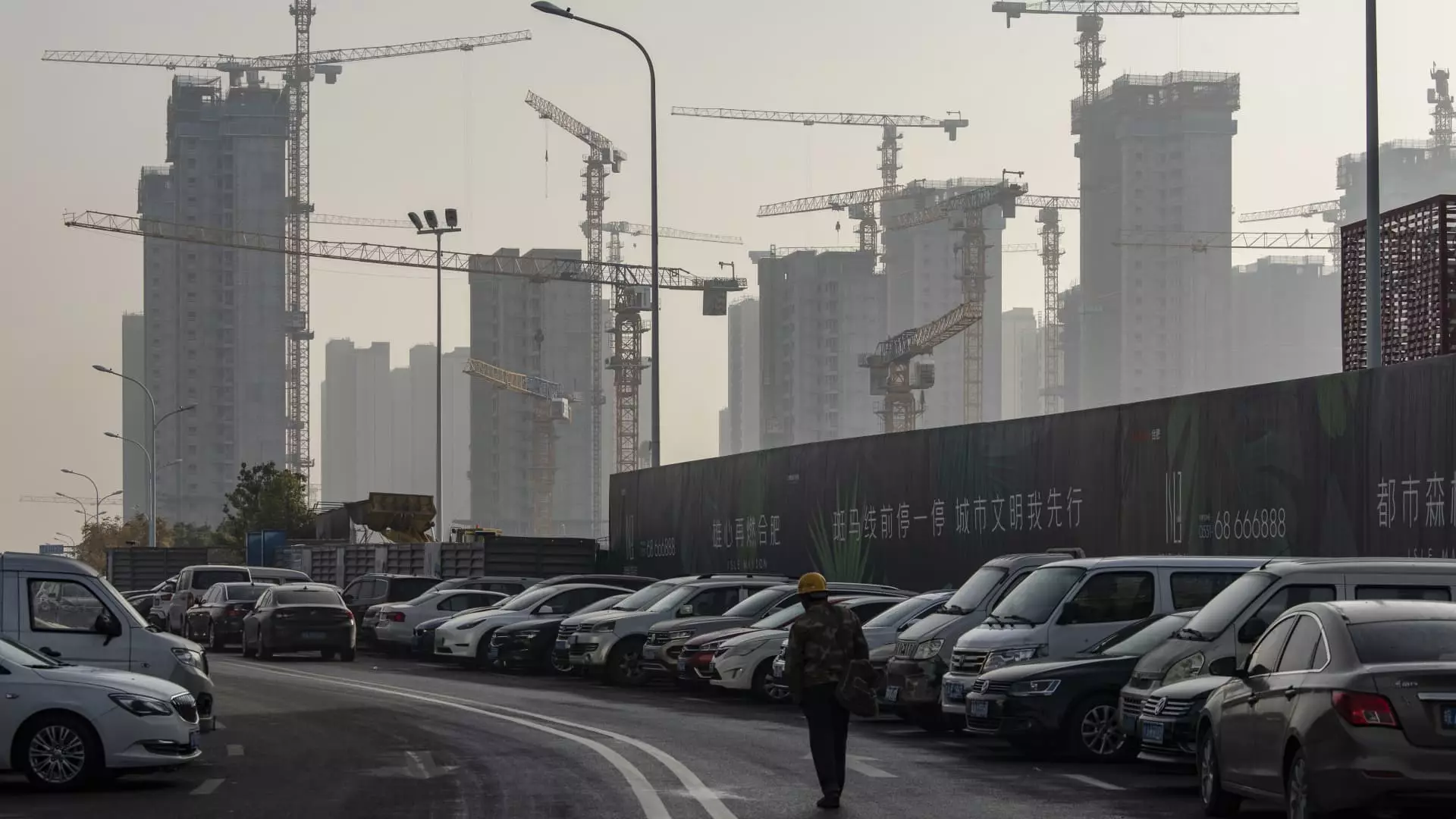The Chinese real estate market, once a powerhouse of economic growth, is currently grappling with significant challenges. Analysts predict that the sector won’t start to recover until the latter half of 2025, despite the government’s recently introduced stimulus measures. This article delves into the intricacies of the situation, examining potential paths for recovery, the obstacles that lie ahead, and the broader implications for China’s economy.
The downturn in China’s real estate sector is a multifaceted issue, rooted in years of aggressive borrowing by property developers as they sought to capitalize on a booming market. This business model, heavily reliant on debt and pre-sales, became unsustainable when the Chinese government introduced regulations to curb excessive borrowing. As a result, many developers have found it increasingly difficult to deliver pre-sold homes, leading to a significant dip in consumer confidence.
As households face an uncertain economic environment, their willingness to invest in new properties diminishes. The interconnection between real estate and local government finances adds another layer of complexity. Property sales have historically accounted for a substantial portion of local governments’ revenue, and as sales plunge, this vital financial lifeline is increasingly at risk.
In an attempt to counteract this downward trend, Chinese President Xi Jinping convened a high-level meeting in late September, which signaled a commitment to halt the decline within the real estate market. The recent stimulus measures are reflective of a broader strategy aimed not only at stabilizing property prices but also at revitalizing the overall economy.
Analysts from various research firms, including Goldman Sachs and S&P Global Ratings, have suggested that the success of these measures hinges on substantial fiscal spending—estimated at an additional 8 trillion yuan (approximately $1.12 trillion). The expectation is that this investment would help address the liquidity issues faced by developers while also tackling the backlog of unsold homes. Despite these optimistic forecasts, there is a consensus among analysts that stabilizing the market will take time.
Despite the government’s attempts to instill confidence, the property market remains in a precarious position. Recent data indicates a 4% decline in property sales across 22 major cities in October, a stark contrast to the more dramatic 25% drop recorded the previous month. While this may suggest a slight alleviation of pressures, it is insufficient for a sustainable recovery.
Predictions regarding property prices point towards stabilization around late 2025, with anticipated increases of just 2% by 2027. Even as some measures go into effect, the complex reality is that the market is unlikely to return to the robust sales figures seen in 2021. In fact, forecasts show a likely contraction of sales to 8 trillion yuan by 2025—less than half of the 18 trillion yuan recorded in the market’s peak year.
One of the most pressing issues facing the real estate sector is the overwhelming inventory of unsold homes. Analysts estimate that approximately 30% of this inventory may never be sold, which places additional financial strain on banks and developers. The sheer volume of unsold properties has forced developers into aggressive price-cutting measures, further exacerbating the downturn.
As state efforts to promote affordable housing take shape, with initiatives such as the 300 billion yuan relending loan facility introduced by the People’s Bank of China, there remains concern over whether these solutions can adequately address the fundamental problems plaguing the market. Although they represent a small fraction (about 4-6%) of the total housing stock, they may not suffice to bring long-term relief.
Looking ahead, while there are hints of stabilization, the recovery of China’s real estate market is fraught with uncertainty. The lack of consumer confidence, combined with the significant challenges of unsold inventory and developer liquidity, means that any optimism should be tempered with caution.
The upcoming parliamentary meeting will be crucial to observe how the government plans to prioritize fiscal support for the real estate sector in light of its broader economic goals. An understanding of these developments is not merely academic; the health of the real estate sector is essential to the overall economic landscape of China.
China’s real estate market is at a critical juncture. Whether the sector can emerge from its current woes depends on effective government interventions, market sentiment, and the ability to manage existing inventories. While there are signs of potential recovery, a combination of cautious optimism and pragmatic policy measures will be required to navigate this challenging environment effectively.

